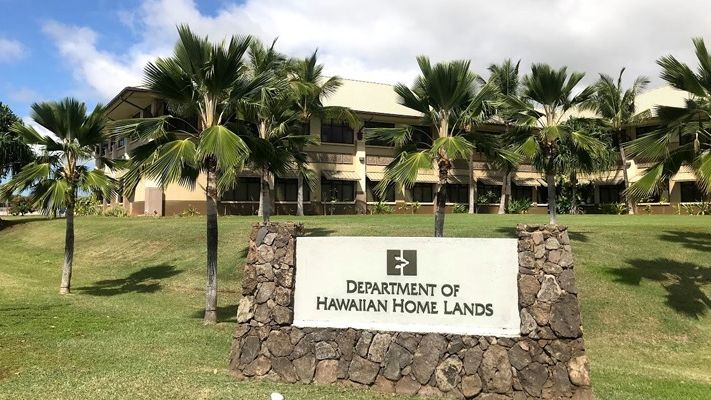Capping off a historic legislative season for Native Hawaiian causes, Gov. David Ige signed into law Monday a measure that provides some $600 million to the Department of Hawaiian Homelands to help clear nearly 3,000 lease applicants languishing on its waitlist.
House Bill 2511 funds a multi-pronged approach to eliminating the waitlist and requires DHHL to develop a strategic plan to address applicant preferences.
Ige harkened back more than 30 years to his work in the state Legislature and the early efforts taken to address problems with DHHL and the long delays in its awarding of leases. He called the current measure a “huge step forward” but acknowledged that there is more that needs to be done to fulfil the Hawaiian Homestead Act and provide beneficiaries with more options to benefit from the program.
Ige noted DHHL has already started a new subsistence lease program for small farming operations, started its first high-rise rental project, and adopted new technology to allow for DNA testing to confirm biological parent-child relationships.
Ige said increased General Fund support has enabled the state to increase funding to DHHL for critical functions.
“We are supporting the operating requirements of (DHHL) at the highest level in the history of the State of Hawaii and certainly we do know that House Bill 2511 will allow us to envision more projects, more options to provide leases and homestead opportunities for beneficiaries,” he said.
The significance of the signing was not lost of state Sen. Jarrett Keohokalole, who said he “never thought that anything like this was even remotely possible” when he was recruited by Rep. Daniel Holt to serve as co-chair of the Native Hawaiian Legislative Caucus, four years ago.
He praised Ige, state House speaker Scott Saiki, House finance chair Sylvia Luke and others for increasing funding to DHHL in recent years and setting the stage for what promised to be a transformational investment in the Hawaiian community.
“For us to get to this point is really significant because when you have a large sum of money, a large surplus like we had this year, there are thousands of things to do with that money and many, many, many of them are very important to address — lots of really critical needs,” he said. And how you reflect on this often says what your values are. So the fact that this year we were able to allocate so much of this historic revenue surplus to meet the needs and settle the obligations and acknowledge the history of the state of Hawaii, the relationship with the Hawaiian community, especially after all of the controversy that has plagued the relationship between Native Hawaiians and the state government over these last several years is really, really, I think, impressive.
“To me, it sends a message to people in the community that engaging is very important,” he said. “There are different roles for all of us, but engaging is critical because that’s the only way that progress can be made and people can come together.”
DHHL director William Aila said the enactment of HB 2511 brings Hawaiians one step closer to fulfilling Prince Jonah Kuhio Kalanianaole’s vision of returning Native Hawaiians to their ancestral lands.
“This is the most consequential allocation of funding that the department has received in its history of existence,” he said. “What this will do is expedite construction that would have been stretched out to 10 or 15 years from now into three, four, five years because that’s what the Legislature tasked us with and, given the resources, what we will ensure gets done.”
Aila said he has staff who are considering putting off planned retirement just to see the process through.
“This is a critical step, and that is a huge statement in and of itself,” he said.
At Monday’s signing, Ige said he also intends to sign off on Senate Bill 3041, which provides an allocation of $328 million to settle the Kalima et al. v. State of Hawaii, a suit originally filed in 1999 by Hawaiian home lands applicants who claimed DHHL breached its fiduciary duty by not awarding land leases in a timely manner.
Michael Tsai covers local and state politics for Spectrum News Hawaii.




